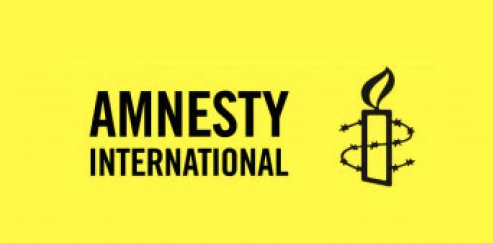The Right Honourable Justin Trudeau
Prime Minister of Canada
Ottawa, Ontario
The Honourable John Horgan
Premier of British Columbia
Victoria, BC
The Honourable Jason Kenney
Premier of Alberta
Edmonton, Alberta
January 13, 2020
Dear Prime Minister Trudeau and Premiers Horgan and Kenney,
We are writing this urgent Open Letter with respect to the Decision 1 (100) issued by the UN Committee on the Elimination of Racial Discrimination (UN CERD) on December 13, 2019 under its Early Warning and Urgent Action Procedure. The decision calls for a halt to construction of the Trans Mountain Pipeline Expansion, the Site C dam and the Coastal GasLink pipeline and cessation of forced evictions from related land defense camps, so as to ensure full respect for the rights of Indigenous peoples. We are writing to the three of you collectively because aspects of the decision have significant implications for or require immediate decisions and actions by each of your governments. It is imperative that you all act without delay to ensure full compliance with this important United Nations human rights ruling in its entirety.
Specifically, the UN CERD has called on Canada to take the following urgent steps. While the Committee directs the decision to Canada, some of the responsibility for compliance would of course rest at provincial level.
Immediately cease construction of the Trans Mountain Pipeline Expansion project and cancel all permits, until free, prior and informed consent is obtained from all the Secwepemc people.
Immediately suspend the construction of the Site C dam, until free, prior and informed consent is obtained from the West Moberly and Prophet River Nations.
Immediately halt the construction and suspend all permits and approvals of the construction of the Coastal GasLink pipeline in the traditional and unceded lands and territories of the Wet’suwet’en people, until they grant their free, prior and informed consent.
Immediately cease forced eviction of Secwepemc and Wet’suwet’en peoples.
Guarantee that no force will be used against Secwepemc and Wet’suwet’en peoples and that the Royal Canadian Mounted Police and associated security and policing services will be withdrawn from their traditional lands.
Prohibit the use of lethal weapons, notably by the Royal Canadian Mounted Police, against Indigenous Peoples.
In all instances, free, prior and informed consent should follow full and adequate discharge of the duty to consult.
At the heart of the UN CERD decision is the Committee’s longstanding concern about the failure, across Canada, to uphold the important right of Indigenous Peoples to be meaningfully consulted and that important developments impacting their rights go forward on the basis of their free, prior and informed consent. Over the course of many years, the Committee has repeatedly and frequently highlighted serious shortcomings both with respect to specific decisions that have been reached without FPIC being obtained or in which consultations have been inadequate, and also as a matter requiring broad law and policy reform. These concerns have been consistently reflected in the UN CERD’s Concluding Observations, adopted in numerous reviews of Canada’s record of compliance with the country’s obligations under the UN Convention on the Elimination of All Forms of Racial Discrimination.
Notably, therefore, in this recent Decision the Committee has also once again reiterated the importance of wider reforms, including:
Establishing, in consultation with Indigenous Peoples, a legal and institutional framework to ensure adequate consultation with the view to obtain free, prior and informed consent regarding all legislation affecting Indigenous Peoples.
Taking necessary steps, in consultation with Indigenous Peoples, to incorporate free, prior and informed consent in domestic legislation.
Freezing present and future approval of largescale development projects that do not enjoy free, prior and informed consent from all Indigenous Peoples affected.
At a minimum we look for assurance from your governments of an immediate suspension of construction of these three major projects, while consultations that meet international human rights requirements – such as free, prior and informed consent – go forward.
It is crucial that Canada comply with this decision for two fundamental reasons. First and foremost, that action is urgently required because of the serious nature of the human rights violations at stake. All of your governments have recognized that significant shifts are required to move forward with reconciliation with Indigenous peoples and show full regard for their rights in the Constitution and under international law. If promises to do so are not met with concrete action, very much including tough and challenging decisions such as those required here, then the words remain empty. That is the shameful history that Canada absolutely must leave behind.
Secondly, compliance is so important in this instance as a means of demonstrating the strong regard that your three governments have for the international human rights system. At a time when an increasing number of countries are actively undermining and flouting their international human rights obligations, it is more important than ever for countries like Canada to demonstrate a strong commitment to international human rights norms and institutions such as the UN CERD entrusted by governments with responsibility for overseeing compliance with those norms.
Governments around the world often seek to justify their failure to live up to international human rights obligations by arguing that the cost of protecting rights is too high, insisting that there are already adequate national laws and processes in place to protect rights, or sacrificing the rights of one group (which in many countries is often Indigenous Peoples) because of the economic interests of others.
Canada must not in any way echo those excuses; but instead demonstrate that we do indeed put human rights first and in doing so, expect other states to do similarly.
We look forward to assurances that you will immediately comply with the UN CERD’s decision with respect to the Trans Mountain Pipeline Expansion, Site C dam and Coastal GasLink pipeline, as well as the steps you will be taking to implement the full set of recommendations from the Committee.
Sincerely,
Alex Neve
Secretary General
Amnesty International Canada (English branch)
France-Isabelle Langlois
Directrice générale
Amnistie internationale Canada francophone





















